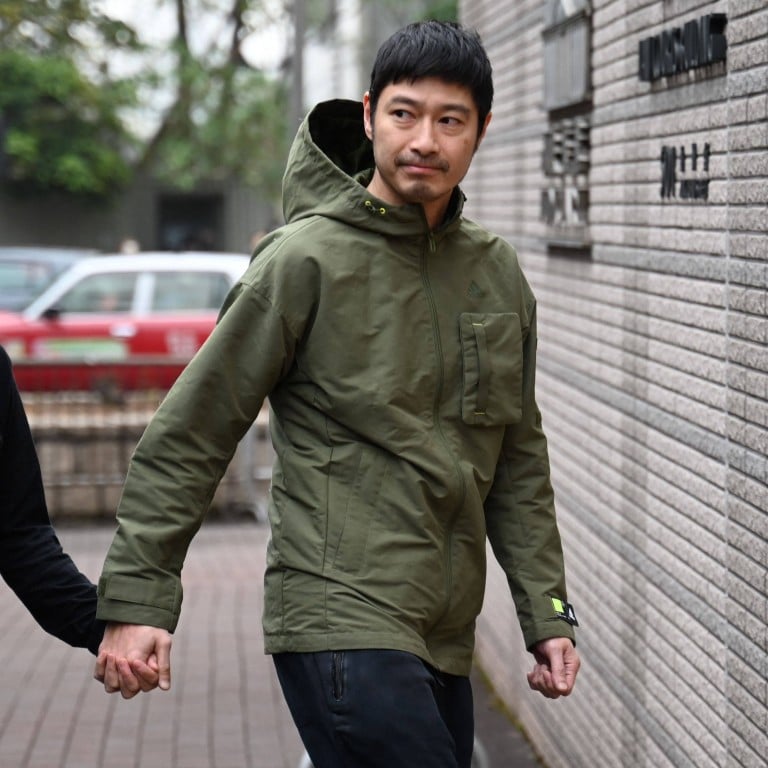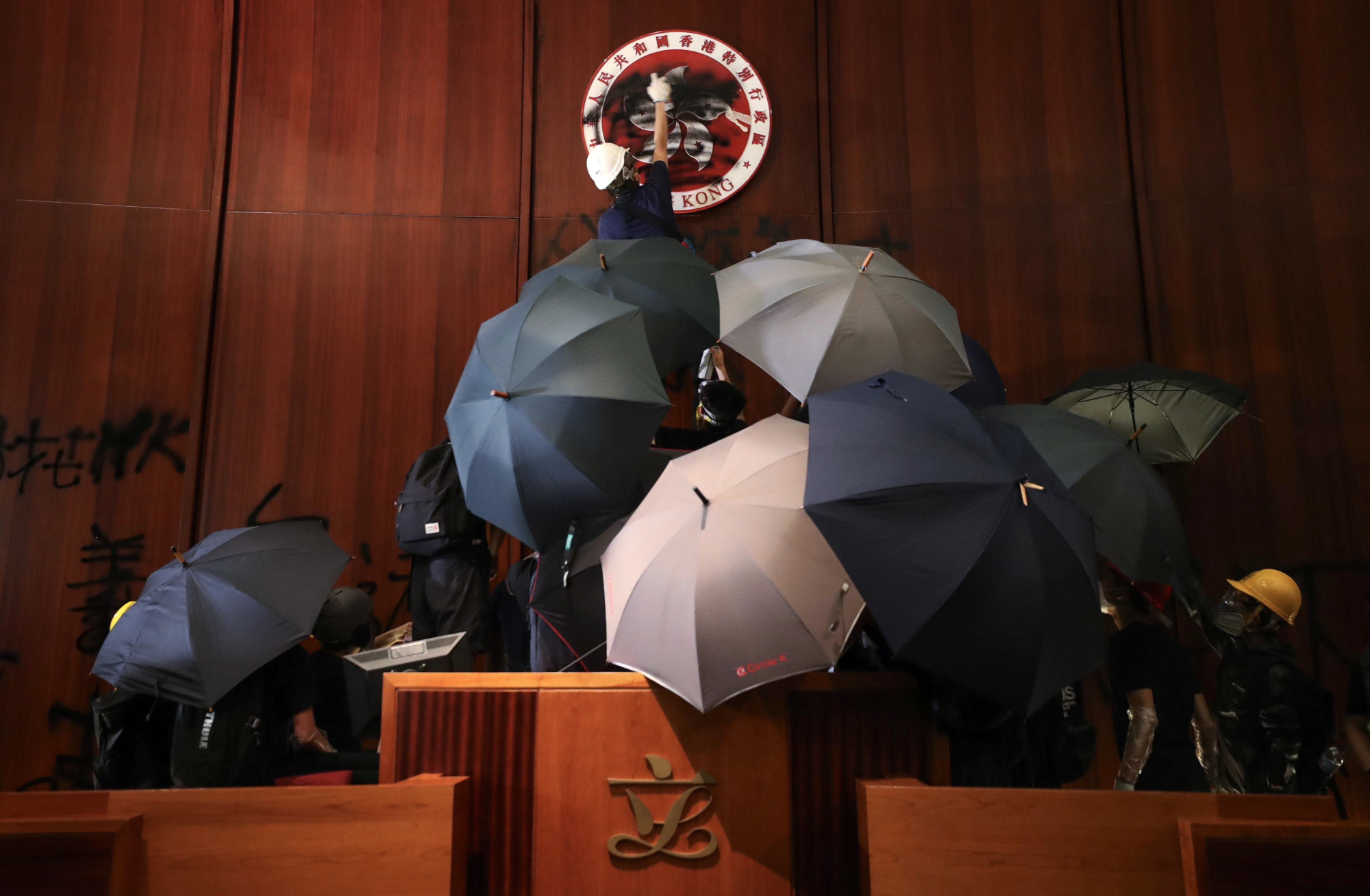
Hong Kong actor Gregory Wong convicted of rioting at Legco during 2019 anti-government protests
- Wong told by judge his defence that he visited the Legco complex occupied by protesters to deliver phone chargers to reporters was ‘untruthful’
- Judge says Wong could use his high profile to incite protesters and encourage rioters
Gregory Wong Chung-yiu, 44, was told by Deputy District Judge Li Chi-ho at West Kowloon Court that his argument did not stand up.
Li said the defendant could have handed the chargers to any reporter he met outside Legco, but Wong instead went into the building, briefly stayed inside the defaced chamber and hugged a protester.
“Wong’s statement was not reliable and was untruthful,” Li added.
“He was only making an excuse to appear inside Legco, but giving chargers to reporters was never the real purpose.”

The court earlier heard that Wong arrived at Legco on July 1, 2019, at about 11.40pm and stayed for less than five minutes during a protest over a controversial extradition bill, which was later withdrawn.
Footage showed that someone dressed in the black clothes favoured by protesters had thanked him.
The recording also showed that Wong mingled with and hugged some people before he left the complex.
Hong Kong actor Gregory Wong tells court going to Legco was ‘foolish’ amid social unrest
Li delivered his reasons for the verdict to the TV and film star alongside five other defendants, all of whom had pleaded not guilty to charges of rioting.
“Wong said he has always been enthusiastic about helping others,” Li said.
“It does not justify him going into Legco as he already knew police would clear the area after midnight.
“Apparently, a series of Wong’s cordial gestures to the protesters were to show support for the riot and that showed his intent of participating in the riot.”
Li highlighted Wong’s profession and said he could make use of his high profile to incite protest and encourage rioters.
The court had heard that Wong had joined a legal procession against the proposed legislation earlier that day, which showed his stance on the extradition bill.
He was said to have driven around the city shopping for phone chargers that were asked for by unidentified reporters inside the complex.
Wong and three other men were found guilty of rioting.
But Wong Ka-ho, of the City University Student Press, and Ma Kai-chung, a reporter with digital media outlet Passion Times, were cleared of the same charge.
Wong, however, was convicted of failure to behave in an orderly manner in the Legco building and Ma was found guilty of not complying with an official’s directions.
Who were the young faces of Hong Kong’s democracy movement and where are they now?
Li said there was no evidence to suggest the two were in the building for anything other than reporting duty.
The case involved a total of 14 defendants, with eight others, including protest organiser Ventus Lau Wing-hong, Althea Suen, a former student leader, and activist Owen Chow Ka-ching earlier pleading guilty.
Li adjourned the case until March 16 for sentence.
The anti-government protests were triggered by proposed legislation that would have allowed people to be extradited to mainland China, as well as to other jurisdictions.
The citywide protests started in June 2019 and continued until early 2020.

